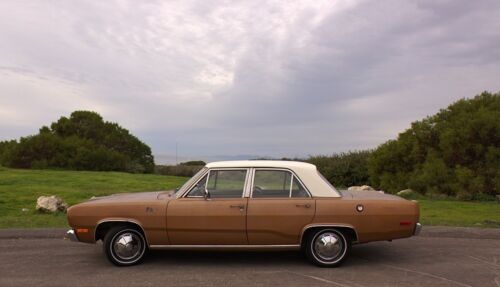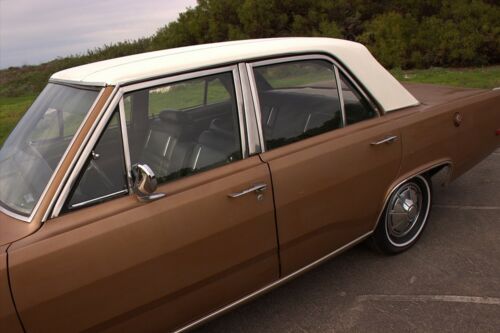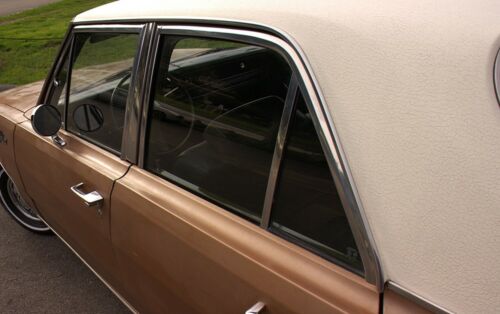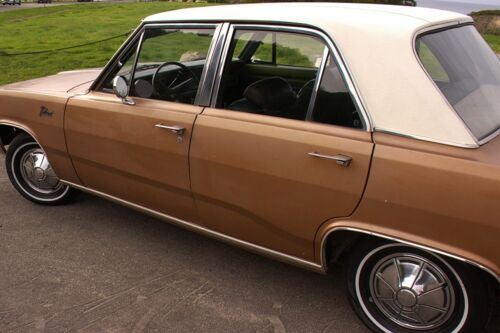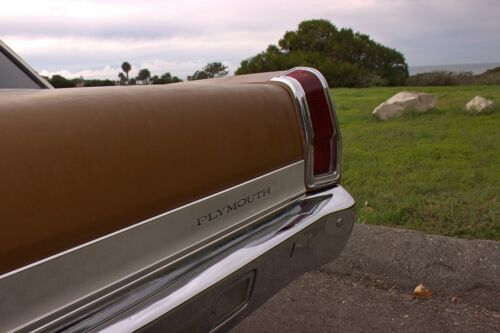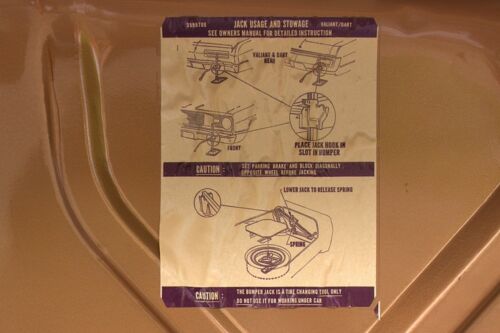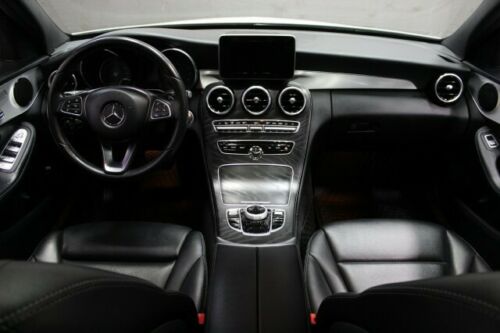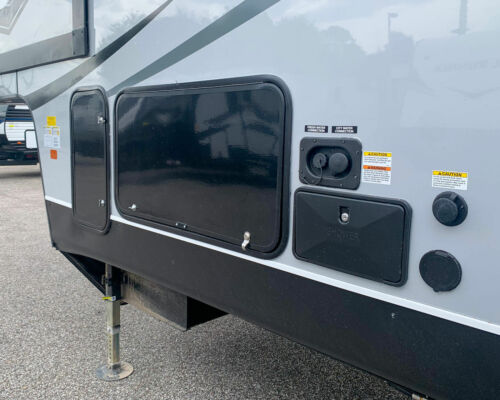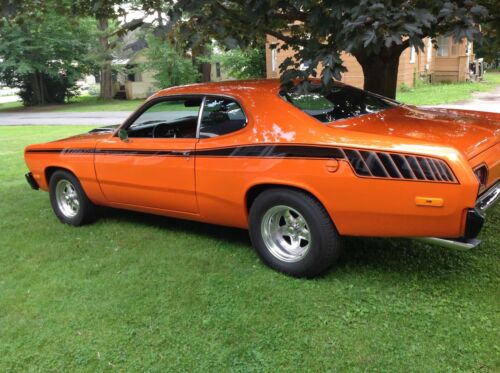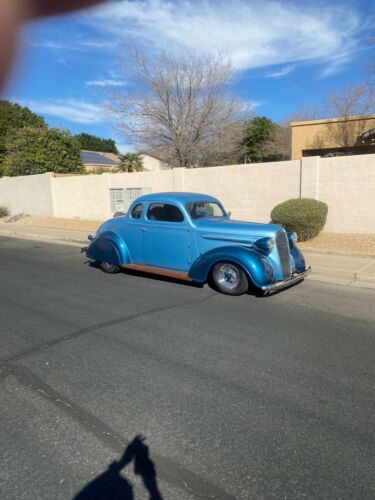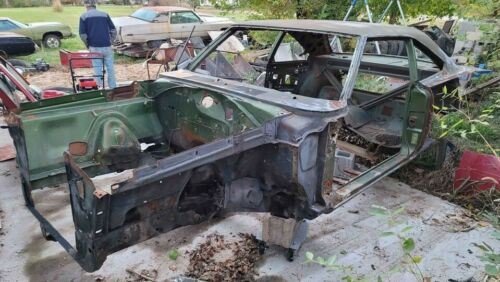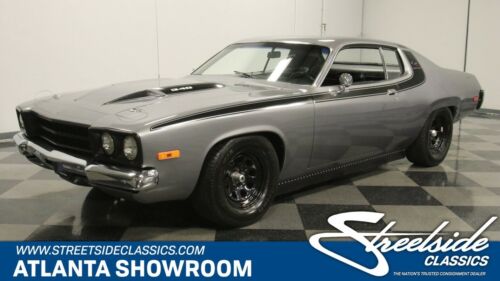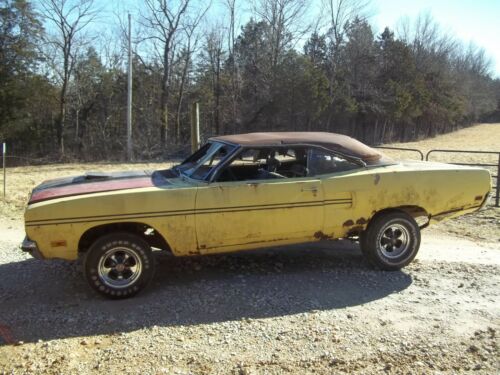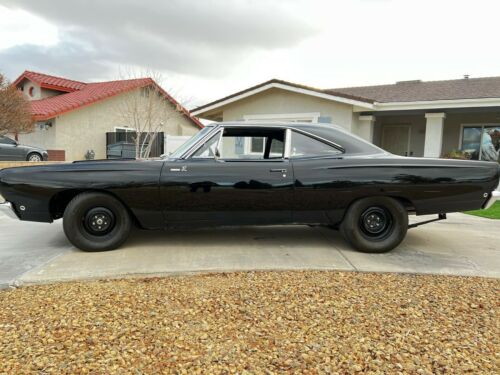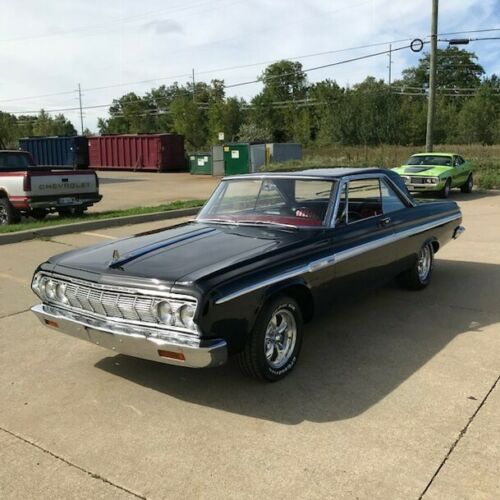1972 Plymouth Valiant
Sale price: $7995,00
make an offer
Technical specifications
| Manufacturer: | Plymouth |
| Model: | Valiant |
| Year: | 1972 |
| Type: | Coupe |
| Fuel Type: | Gasoline |
| Color: | Gold |
| Mileage: | 55465 |
| Transmission: | Automatic |
| Interior Color: | Green |
| Engine: | Slant 6 |
| Number of Cylinders: | 6 |
| Got questions? | Ask the Seller |
Current customer rating:
 ()
()
based on 10 votes
based on 10 votes
Photos
Description
This 1972 Plymouth Valiant was sold new in Montana before being acquired from the original owner and moving to Los Angeles. It’s a solid daily driver or the perfect project car waiting to be taken to the next level. Recent maintenance includes electrical, power train, transmission maintenance and fitment of newer tires. This Valiant is offered with the original registration, dealer, maintenance documents and clean California title.
Chrysler needed a to compete against the wildly popular VW Beetle so in May 1957, Chrysler president Lester Lum “Tex” Colbert established a committee to develop a competitor for the increasingly popular Beetle, and famed designer, Virgil Exner developed a car that was smaller and lighter than a full-size car without sacrificing passenger and luggage space. The Valiant debuted at the 44th International Motor Show in London on October 26, 1959. It was introduced as a 1960 model and was officially considered a distinct brand, advertised with the tagline 'Nobody's kid brother, this one stands on its own four tires.
The Valiant debuted an all-new 6-cylinder overhead-valve engine, the famous Slant-Six. Its inline cylinders were uniquely canted 30° to the right (passenger side). This allowed a lower hood-line, shorter engine length—the water pump was shifted from front to alongside—and efficient long-branch individual-runner intake manifolds, an advance that benefited from Chrysler's pioneering work in tuned intakes.
The Slant-6 produced both more power and better economy than GM and Ford offerings, and the engine also soon gained a reputation for utter dependability. Project Engineer Willem Weertman and his team had designed a simple yet robust workhorse, from its four-main forged crankshaft to a simplified "mechanical" valve train. Block and head castings were unusually thick because both were intended to be cast in either iron or aluminum with the same tooling. Although volume casting techniques of the era could not yet reliably produce complex head castings in aluminum, over 50,000 die-cast aluminum-block versions of the 170 cu in (2.8 L) engine were produced.
Power comes from a Chrysler original 170 cu in (2.8L) Slant 6 topped with a 2bb carburetor. This unmolested power plant fires right up and sounds strong. Over the last four years, the seller has performed numerous mechanical services, including the following:
Transmission rebuild, filter and seals
New over-sized radiator, shocks, tires and front end alignment
Suspension components serviced and cleaned
Electrical fixes
Front and rear brakes
All new fluids
Lubrication services
Tune - ups
As you approach the car you'll notice how clean and good looking the white vinyl top looks. It's perfect against the gold body. Speaking of body, you can't argue with the lines and how nice and proper fitting the panels are.
She turns heads wherever she goes!
Also published at eBay.com
Chrysler needed a to compete against the wildly popular VW Beetle so in May 1957, Chrysler president Lester Lum “Tex” Colbert established a committee to develop a competitor for the increasingly popular Beetle, and famed designer, Virgil Exner developed a car that was smaller and lighter than a full-size car without sacrificing passenger and luggage space. The Valiant debuted at the 44th International Motor Show in London on October 26, 1959. It was introduced as a 1960 model and was officially considered a distinct brand, advertised with the tagline 'Nobody's kid brother, this one stands on its own four tires.
The Valiant debuted an all-new 6-cylinder overhead-valve engine, the famous Slant-Six. Its inline cylinders were uniquely canted 30° to the right (passenger side). This allowed a lower hood-line, shorter engine length—the water pump was shifted from front to alongside—and efficient long-branch individual-runner intake manifolds, an advance that benefited from Chrysler's pioneering work in tuned intakes.
The Slant-6 produced both more power and better economy than GM and Ford offerings, and the engine also soon gained a reputation for utter dependability. Project Engineer Willem Weertman and his team had designed a simple yet robust workhorse, from its four-main forged crankshaft to a simplified "mechanical" valve train. Block and head castings were unusually thick because both were intended to be cast in either iron or aluminum with the same tooling. Although volume casting techniques of the era could not yet reliably produce complex head castings in aluminum, over 50,000 die-cast aluminum-block versions of the 170 cu in (2.8 L) engine were produced.
Power comes from a Chrysler original 170 cu in (2.8L) Slant 6 topped with a 2bb carburetor. This unmolested power plant fires right up and sounds strong. Over the last four years, the seller has performed numerous mechanical services, including the following:
Transmission rebuild, filter and seals
New over-sized radiator, shocks, tires and front end alignment
Suspension components serviced and cleaned
Electrical fixes
Front and rear brakes
All new fluids
Lubrication services
Tune - ups
As you approach the car you'll notice how clean and good looking the white vinyl top looks. It's perfect against the gold body. Speaking of body, you can't argue with the lines and how nice and proper fitting the panels are.
She turns heads wherever she goes!
Also published at eBay.com
